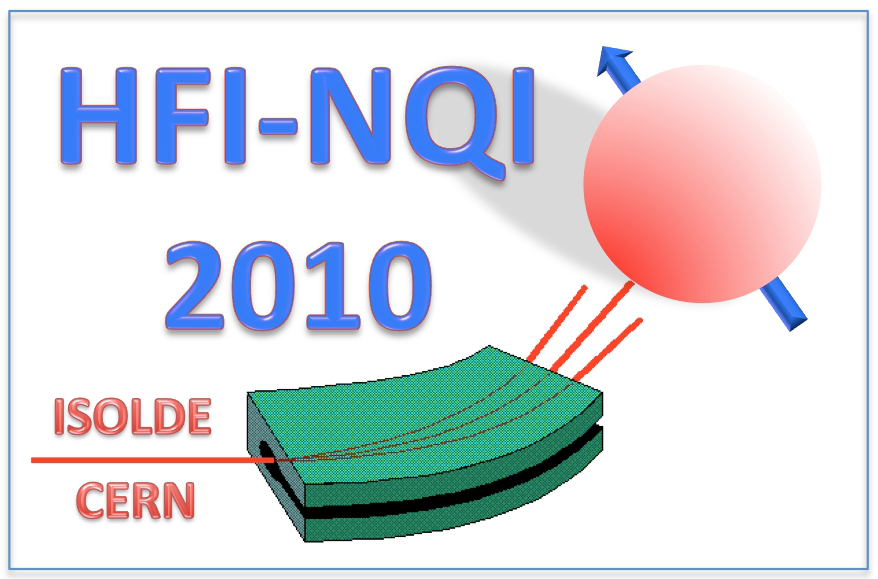Speaker
Tania Melo Mendonça
(IFIMUP and IN – Institute of Nanosciences and Nanotechnology, Dep. de Física da Faculdade de Ciências da Universidade do Porto, Rua do Campo Alegre 687, 4169-007 Porto, Portugal)
Description
Lattice sites and collective ordering of oxygen atoms in HgBa2CaCu2O6+δ (Hg-1212) were studied using the Perturbed Angular Correlation technique. The electric field gradients (EFG) at 199mHg nuclei have been measured allowing a full characterization of the Hg neighborhood charge distribution as function of the oxygen doping on the Hg planes. The experiments have been performed at different annealing conditions, under argon flow or oxygen pressure up to 152 bars. In comparison with the data and calculations obtained for oxygen and fluorine doping in Hg1201, the analysis hints that at high concentrations oxygen atoms order in a different way than the reported previously. Furthermore, the experimental results show that a local scale there is a non-uniform oxygen distribution. A series of ab-initio calculations, simulating different oxygen doping configurations, is also presented. Several HgmBa2mCam-1CumO6m+n supercells, for different nominal oxygen concentrations, have been constructed. The simulated results are further compared with the experimental ones. Moreover, the possibility of the existence of oxygen dumbbell molecules, instead or coexisting with single atoms in the center of the Hg mesh is discussed. Atomic stripe-like oxygen configuration and the location of oxygen atoms in the (0, ±1/2, zHg) position are experimentally excluded.
| Are you a student, a delegate from developing countries or a participant with physical needs and would like to apply for a sponsored accomodation. Please answer with yes or no. | yes |
|---|---|
| Please specify whether you would prefer an oral or poster contribution. | poster |
Author
Tania Melo Mendonça
(IFIMUP and IN – Institute of Nanosciences and Nanotechnology, Dep. de Física da Faculdade de Ciências da Universidade do Porto, Rua do Campo Alegre 687, 4169-007 Porto, Portugal)
Co-authors
Dr
Armandina Maria Lima Lopes
(Centro de Física Nuclear da Universidade de Lisboa, Av. Prof. Gama Pinto 2, 1649-002 Lisboa, Portugal)
Dr
Celine Darie
(Institut Néel, CNRS, Av. des Martyrs 25, F-38042 Grenoble CEDEX 9, France)
Dr
Heinz Haas
(Instituto Tecnológico e Nuclear, E.N. 10, 2686-953 Sacavém, Portugal)
Dr
Joao Guilherme Correia
(Instituto Tecnológico e Nuclear, E.N. 10, 2686-953 Sacavém, Portugal)
Dr
Joao Pedro Araujo
(IFIMUP and IN – Institute of Nanosciences and Nanotechnology, Dep. de Física da Faculdade de Ciências da Universidade do Porto, Rua do Campo Alegre 687, 4169-007 Porto, Portugal)
Dr
Manuel Ribeiro da Silva
(Centro de Física Nuclear da Universidade de Lisboa, Av. Prof. Gama Pinto 2, 1649-002 Lisboa, Portugal)
Dr
Pedro Bandeira Tavares
(Centro de Química – Vila Real, Departamento de Química, Universidade de Trás-os-Montes e Alto Douro, 5001-911 Vila Real, Portugal)
Dr
Philippe Odier
(Institut Néel, CNRS, Av. des Martyrs 25, F-38042 Grenoble CEDEX 9, France)
